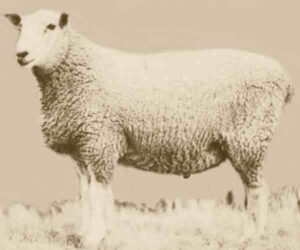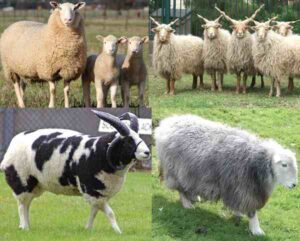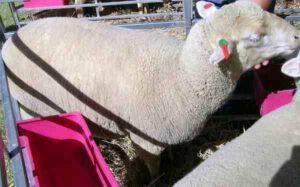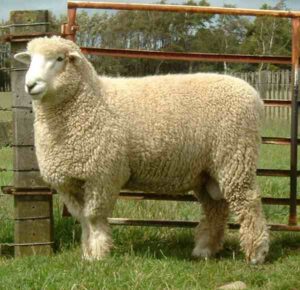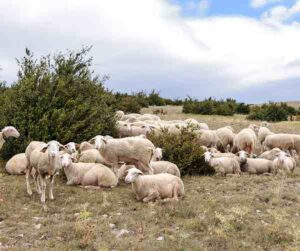The Bergamasca sheep is a multi-purpose breed of domestic sheep which was originated from Italy. It is actually from the mountainous part of the province of Bergamo, in Lombardy in northern Italy. It was originated from the Val Seriana valleys and the Val Brembana area. And the breed is particularly associated with the plateau of Clusone.
The breed had spread through much of Lombardy by the beginning of the twentieth century. And today, the breed is raised and found in most parts of the mainland Italy. The Bergamasca sheep are particularly found in the province of Teramo in Abruzzo, where more than 80 percent of the registered stock are raised. The Bergamasca sheep breed is also known by some other names such as Bergamasker, Gigante di Bergamo and Bergamacia in Brazil.
It is the basic breed of the Lop-eared Alpine group, and the breed is the foundation of the other Lop-eared Alpine breeds and of Perugian Lowland, Fabrianese, Pavullese and Zakynthos. Along with the availability in it’s native area, the breed is also available in Brazil, Venezuela and Serbia.
The Bergamasca sheep is one of the 17 autochthonous Italian sheep breeds for which a genealogical herdbook is kept by the Associazione Nazionale della Pastorizia. The Associazione Nazionale della Pastorizia is the Italian national association of sheep-breeders.
Total population of the Bergamasca sheep breed was estimated at 95,000 in 1983, of which around 7900 were registered in the herdbook. And the registered stock numbered 12,042 in 2013, of which 9833 were in the province of Teramo. Read more information about this Italian sheep breed below.
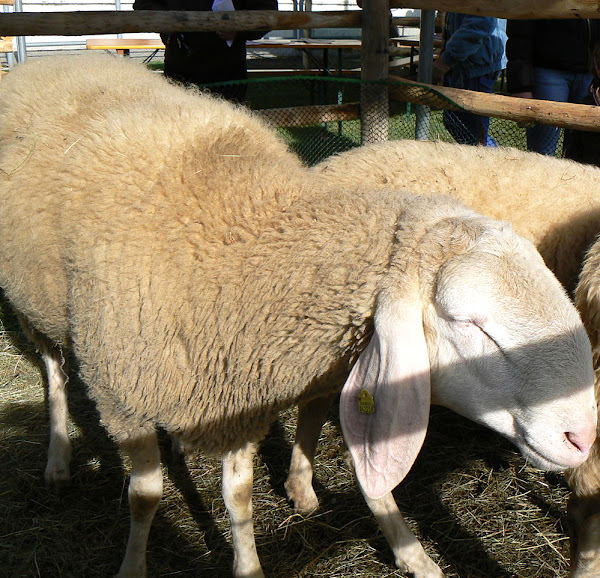
Bergamasca Sheep Characteristics
The Bergamasca sheep are large sized animals. They are mainly white in color with white face. They have large and loped ears. Their skin color is generally pinkish. Both rams and ewes are generally polled. Average body height of the mature Bergamasca rams is around 87 cm at the withers, and around 79 cm for the ewes. Average live body weight of the mature ewes is around 80 kg. And the mature rams on average weight around 111 kg. Photo and info from Wikipedia.
Uses
The Bergamasca sheep are multi-purpose animals. Today they are raised mainly for meat production. But are also good for producing milk and wool.
Special Notes
The Bergamasca sheep are strong and hardy animals. They are well adapted to their native climates, and also do well in some other countries. Today along with the availability in their native areas, these animals are also present in Serbia, Venezuela and Brazil. Currently the breed is mainly raised for meat production in Italy. But these animals are also good for producing wool and milk.
And they often used for cross-breeding with other meat sheep breeds for improving meat yield. The Bergamasca sheep breed is raised traditionally by transhumant management in Lombardy. The herds spend the summers on the alpine pasture, and over-winter in the Po valley. However, review full breed profile of the Bergamasca sheep in the following chart.
| Breed Name | Bergamasca |
| Other Names | Bergamasker, Gigante di Bergamo and Bergamacia in Brazil |
| Breed Purpose | Mainly meat, but also good for milk and wool production |
| Special Notes | Well adapted to their local climates, also do well in some other countries, today the breed is raised mainly for meat production, but are also good for producing milk and wool, often used for cross-breeding with other meat sheep breeds for improving meat yield, large animals |
| Breed Size | Large |
| Weight | Mature ram’s average body weight is around 111 kg, and the mature ewe’s average live body weight is around 80 kg. |
| Horns | No |
| Climate Tolerance | Many climates |
| Color | White |
| Rarity | Common |
| Country/Place of Origin | Italy |
